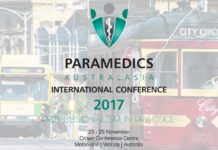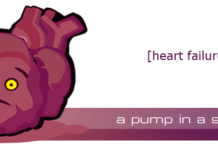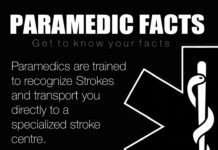Critical Thinking is not a new concept but it is one that is not fully understood. Critical thinking is an important tool for paramedics. Even if you are not familiar with the term critical thinking the chances are that you use it to a certain degree already.
What is Critical Thinking?
Using critical thinking can help you avoid serious errors in judgment when assessing and treating patients. Paramedics must act as detectives, especially when basing judgment on information obtained from other personnel or bystanders at a scene.
Critical thinking is the disciplined, intellectual process of applying skillful reasoning as a guide to belief or action.
In paramedicine, critical thinking for clinical decision-making is the ability to think in a systematic and logical manner with openness to question and reflect on the reasoning process used to ensure safe the best patient care.
Critical thinkers strive to be clear, accurate, precise, logical complete, significant and fair when they listen, speak, read and write. Critical thinkers think deeply and broadly.
As paramedics, we want to eliminate irrelevant, inconsistent and illogical thoughts as we reason about patient care.
The Elements of Thought
All thinking, if it is purposeful, includes the following elements of thought:
- The problem, question, concern or issue being discussed or thought about by the thinker. What the thinker is attempting to figure out.
- The purpose or goal of the thinking. Why we are attempting to figure something out and to what end. What do we hope to accomplish.
- The frame of reference, points of view or even world view that we hold about the issue or problem.
- The assumptions that we hold to be true about the issue upon which we base our claims or beliefs.
- The central concepts, ideas, principles and theories that we use in reasoning about the problem.
- The evidence, data or information provided to support the claims we make about the issue or problem.
- The interpretations, inferences, reasoning, and lines of formulated thought that lead to our conclusions.
- The implications and consequences that follow from the positions we hold on the issue or problem.
To Analyze Thinking We Must Identify and Question its Elemental Structures
Understand Your… Point of View
Point of view is literally “the place” from which you view something. It includes what you are looking at and the way you are seeing it. Make sure you understand the limitations of your point of view and that you fully consider other relevant viewpoints.
Questions to check your point of view
- How am I looking at this situation? Is there another way to look at it that I should consider?
- What exactly am I focused on? And how am I seeing it?
- Is my view the only reasonable view? What does my point of view ignore?
- Have you ever considered the way ____ view this?
- Which of these possible viewpoints makes the most sense given the situation?
- Am I having difficulty looking at this situation from a viewpoint with which I disagree?
- What is the point of view of the author of this story?
- Do I study viewpoints that challenge my personal beliefs?
Gather… Information
Information includes the facts, data, evidence, or experiences we use to figure things out. It does not necessarily imply accuracy or correctness. The information you use should be accurate and relevant to the question or issue you are addressing.
Questions which target information
- What information do I need to answer this question?
- What data are relevant to this problem?
- Do we need to gather more information?
- Is this information relevant to our purpose or goal?
- On what information are you basing that comment?
- What experience convinced you of this? Could your experience be distorted?
- How do we know this information (data, testimony) is accurate?
- Have we left out any important information that we need to consider?
Watch Your… Inferences
Inferences are interpretations or conclusions you come to. Inferring is what the mind does in figuring something out.
Inferences should logically follow from the evidence. Infer no more or less than what is implied in the situation.
Questions to check your inferences
- What conclusions am I coming to?
- Is my inference logical?
- Are there other conclusions I should consider?
- Does this interpretation make sense?
- Does our solution necessarily follow from our data?
- How did you reach that conclusion?
- What are you basing your reasoning on?
- Is there an alternative plausible conclusion?
- Given all the facts what is the best possible conclusion?
- How shall we interpret these data?
Clarify Your… Concepts
Concepts are ideas, theories, laws, principles, or hypotheses we use in thinking to make sense of things. Be clear about the concepts you are using and use them justifiably.
Questions you can ask about concepts
- What idea am I using in my thinking? Is this idea causing problems for me or for others?
- I think this is a good theory, but could you explain it more fully?
- What is the main hypothesis you are using in your reasoning?
- Are you using this term in keeping with established usage?
- What main distinctions should we draw in reasoning through this problem?
- What idea is this author using in his or her thinking? Is there a problem with it?
Check Your… Assumptions
Assumptions are beliefs you take for granted. They usually operate at the subconscious or unconscious level of thought. Make sure that you are clear about your assumptions and they are justified by sound evidence.
Questions you can ask about assumptions
- What am I assuming or taking for granted?
- Am I assuming something I shouldn’t?
- What assumption is leading me to this conclusion?
- What is… (this policy, strategy, explanation) assuming?
- What exactly do sociologists (historians, mathematicians, etc.) take for granted?
- What is being presupposed in this theory?
- What are some important assumptions I make about my roommate, my friends, my parents, my instructors, my country?
Think Through the… Implications and Consequences
Implications are claims or truths that logically follow from other claims or truths. Implications follow from thoughts. Consequences follow from actions. Implications are inherent in your thoughts, whether you see them or not. The best thinkers think through the logical implications in a situation before acting.
Questions you can ask about implications
- If I decide to do “X”, what things might happen?
- If I decide not to do “X”, what things might happen?
- What are you implying when you say that?
- What is likely to happen if we do this versus that?
- Are you implying that…?
- How significant are the implications of this decision?
- What, if anything, is implied by the fact that a much higher percentage of poor people are in jail than wealthy people?


























